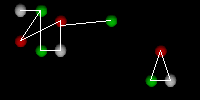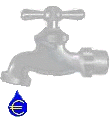
NGO: the wheat and the chaff
The European Commissioner for Development and Humanitarian Aid, Louis Michel, today suggested the creation, by the NGOs themselves, of a “high authority” responsible for setting and monitoring their intervention rules in order to avoid any deviation as with Zoé’s Ark in Chad. “NGOs would have every interest in building a sort of deontological order, of high authority, which would establish (…) the rules of intervention, the ethical conditions,” declared Mr. Michel during a press conference organized in the end of a 24- hour visit to Abidjan. This high authority could “police itself within the NGOs just as there is a medical order which establishes the ethical rules for doctors,” he explained. “There would be a high authority,” he affirmed, “I believe that we would not have excesses, problems or unfortunate amalgams like those we had with the Ark of Zoe”, this association French woman who wanted to transfer 103 children from Chad to France (Le Figaro 11/18/2007).

For once Mr. Michel has an interesting idea… he who, during a conference in Brussels a few years ago, suggested a new colonization of Africa based on the instruments of the European Union, can only see with a positive eye the action of these hundreds of humanitarian organizations which have taken up the “civilizing” and evangelizing action of the preaching brothers of the colonial adventure. In this case, we can also doubt that any ethics could have removed the scabrous character from the action of Zoé’s Ark. Importing African children into Europe for the supposed benefit of families who do not accept their fate, even if they were truly orphans, is not necessarily an action that can be considered responsible or consistent with the public good.
But the interesting aspect of the idea is that civil society must organize itself. Today, civil society organizations are becoming increasingly important in the management of society. The failure of traditional systems of state governance and the growing aspiration of the population to participate in decisions that concern them are driving this. Our opinion is that the State must stop nationalizing, and gradually become one of the regulatory forms of social life but not the only one. At the same time, the State must refocus on its sovereign responsibilities and ensure them well, which is not the case today. If ethical regulation were to be put in place, it would undoubtedly encounter several difficulties.
The first is definitional. NGOs are non-governmental organizations, by definition supposed to be independent of state power, often international, some specializing in neo-colonial Third World humanitarianism, others in environmental protection, etc. others in the fight against poverty and precariousness. The question is to reduce this diversity to a plausible unity. Instead of NGO, we should undoubtedly prefer that of CSO (Civil Society Organization), defined as non-commercial organizations, independent of state power, and aiming at the common good that they help to promote.

The second relates to financing. Without opening up public funding, civil society organizations will find it very difficult to develop because they will only be able to rely on the generosity of donors already pressured by taxation, the cost of living and the pressing demands of all. shares, in a context marked by the weakening of the taste for civic engagement. Such an opening of public financing would mean the end of the state’s monopoly on public resources. It would involve a framework law automatically opening access to public funding to a certain number of organizations satisfying certain criteria, which has nothing to do with subsidization or with “recognition of public utility” that the State is not legitimate to award.
The third is that this regulation would undoubtedly suppose an opening of the state power of coercion, without which the disciplinary decisions of NGOs would remain without effect. The State should therefore undertake to enforce these decisions before its courts where necessary.
As we can see, this is a massive reduction in the role of the State, but compensated by a rise in the power of organized civil society. Nothing to do, therefore, with the liberalism professed by Mr. Michel.










